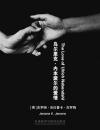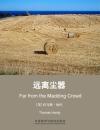《屈身求爱》是一出写于十八世纪末的笑喜剧,全剧围绕当时英国年轻男女的恋爱与婚姻,与《傲慢与偏见》同曲异工,连人物特征都相差无几:英国乡村,颇有点头衔的家庭,颇有些才情与自负的有主见的待嫁女主人公、英俊翩翩的未婚男士造访,加上一个贪慕虚荣一心攀个好女婿的母亲、通情达理且低调的父亲,一并插点儿愚蠢的亲戚,私奔的小插曲,同时作者的幽默感与滑稽论调让人忍俊不禁。 作者最终圆满的处理了各个矛盾,虽然有些太过圆滑,却是令人高兴之作。台词也不乏精彩之处,让人回味。
In She Stoops to Conquer, charming satire of the sentimental comedies of the day has entertained audiences since 1773. The play is a favourite for study by English literature and theatre classes in Britain and the United States. It is one of the few plays from the 18th century to have an enduring appeal, and is still regularly performed today.
《屈身求爱》是一出写于十八世纪末的笑喜剧,全剧围绕当时英国年轻男女的恋爱与婚姻,与《傲慢与偏见》同曲异工,连人物特征都相差无几:英国乡村,颇有点头衔的家庭,颇有些才情与自负的有主见的待嫁女主人公、英俊翩翩的未婚男士造访,加上一个贪慕虚荣一心攀个好女婿的母亲、通情达理且低调的父亲,一并插点儿愚蠢的亲戚,私奔的小插曲,同时作者的幽默感与滑稽论调让人忍俊不禁。 作者最终圆满的处理了各个矛盾,虽然有些太过圆滑,却是令人高兴之作。台词也不乏精彩之处,让人回味。
She Stoops to Conquer is a comedy by Irish author Oliver Goldsmith that was first performed in London in 1773. A young lady poses as a serving girl to win the heart of a young gentleman too shy to court ladies of his own class. Many delightful deceits, hilarious turns of plot must be played out before the play concludes happily. It has been adapted into a film several times, including in 1914 and 1923. Initially the play was titled Mistakes of a Night, and indeed, the events within the play take place in one long night.
- To SAMUEL JOHNSON, LL.D.
- PROLOGUE
- DRAMATIS PERSONAE
- ACT THE FIRST
- ACT THE SECOND
- ACT THE THIRD
- ACT THE FOURTH
- ACT THE FIFTH
- 书评 写书评
- 笔记
-
书评加载中...























 京公网安备 11010802032529号
京公网安备 11010802032529号
笔记加载中...